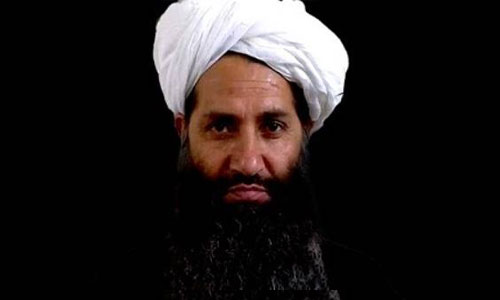If the Taliban leader Mullah Haibatullah could have died as a result of the coronavirus pandemic, as unconfirmed reports claim, the Afghan peace process would have been affected adversely. The death of the Taliban’s founding father Mullah Muhammad Omar, which remained secret for years, derailed the peace talks between the Kabul government and the Taliban. If Haibatullah is dead, the Taliban leadership will again seek to keep it secret so that its rank and file do not lose their morale in battlefields.
Moreover, the closure of Haibatullah’s death will generate two more horrible consequences. First, there will emerge a discord within the Taliban leadership for the appointment of his successor. Although the appointment of Mullah Mohammad Yaqoob as the leader is more likely, there will still be disagreement within the Taliban group. Meanwhile, the Afghan peace process may reach a stalemate in the wake of the discord within the Taliban outfit.
If Haibatullah is simply suffering from the coronavirus, the Taliban may seek to postpone the start of intra-Afghan dialogue until his recovery. Furthermore, the report of Haibatullah’s unconfirmed death must have worried the Taliban leadership, which will seek to send a recorded view of him, if he is alive, as soon as he is recovered. But if his absences continues, the level of public doubt will increase and the Taliban may have no choice other than confirming his death officially. In short, the Taliban either have to rebut or confirm Haibatullah’s death and a simple refusal may not alleviate the public doubt.
There seems to be much confusion about the peace process. The US special envoy to Afghanistan Zalmay Khalilzad remains optimistic about the start of the intra-Afghan dialogue, the UN Security Council reports that the Taliban and Al-Qaeda “remain close” and were in regular consultations over the negotiations with Washington, Haibatullah is rumored dead, the Trump administration is in a hurry to withdraw its troops from Afghanistan, and so on. In other words, nothing seems transparent regarding the talks and there are fear and hope in the air.
According to general belief in Afghanistan, Khalilzad gives much credit and legitimacy to the Taliban in his formal statements and tweets after signing deal with the group as he downplayed the UN report about the Taliban-Al-Qaeda’s close tie and denied Taliban’s involvement in the attacks on maternity hospital in Kabul, which killed women and newborns. Khalilzad’s optimistic approach carries less significance for Afghan people as he expressed optimism from the very beginning of his negotiations with the Taliban in Qatar despite any hurdles and roadblocks. To this end, Khalilzad had better approach the peace process from more realistic perspective rather than usual clichés.
With the intensification of the Taliban’s attacks against the Kabul government, Afghan ordinary people and officials doubt if the Taliban outfit honors the peace deal, signed in February between the group and Washington, and fear that the group will continue its tie with Al-Qaeda.
To this end, there are two challenging possibilities, which will threaten the peace process: The death of Haibatullah Akhundzada and the close tie between the Taliban and Al-Qaeda.
What will be the reaction of the White House if the Taliban and Al-Qaeda maintain ties? It seems that the Trump administration tends to ignore the UN report about the Taliban-Al-Qaeda’s tie since it is in a hurry to reduce its troops simply to fulfill its commitment of returning troops to the American nation before the upcoming presidential election. But it should be noted that withdrawal in a hurry will put a highly adverse effect on the Afghan security situation, which may not secure credit for Donald Trump in his presidential campaign. To put it succinctly, if the Trump administration withdraws the American troops from the country without regard to its consequences, the peace process may be further complicated and stability may remain elusive. In such a case, the US-Taliban peace agreement will do more harm to Afghanistan’s security situation than good. Thus, the troop pullout must be truly condition-based and the US should ensure that the Taliban honor the peace deal and enjoy no tie with Al-Qaeda.
The Kabul government and the Taliban should start the intra-Afghan dialogue before the challenges grow further. In the meantime, the Taliban should honestly tell the public whether or not Haibatullah is alive since it is of a paramount significance in the peace talks. The Taliban will be able to prevent the devastating effect of Haibatullah’s death, if he has died, on the issue of peace talks through immediately appointing his successor before it creates a split and overwhelm their rank and file.
Home » Opinion » The Consequences of Haibatullah’s Possible Death on Peace Process
The Consequences of Haibatullah’s Possible Death on Peace Process
| Hujjatullah Zia

